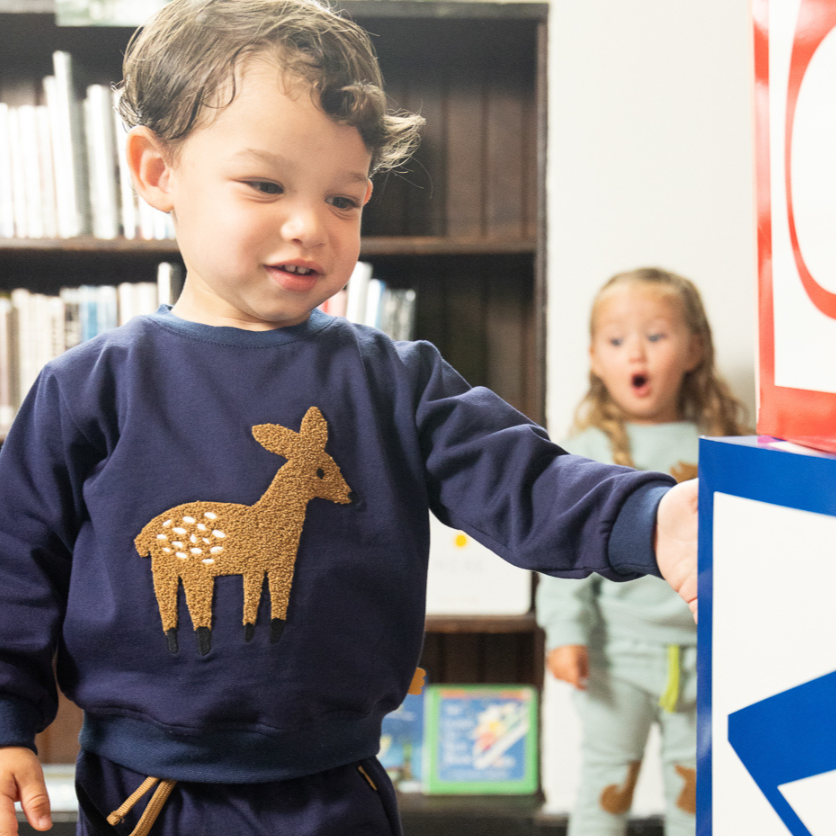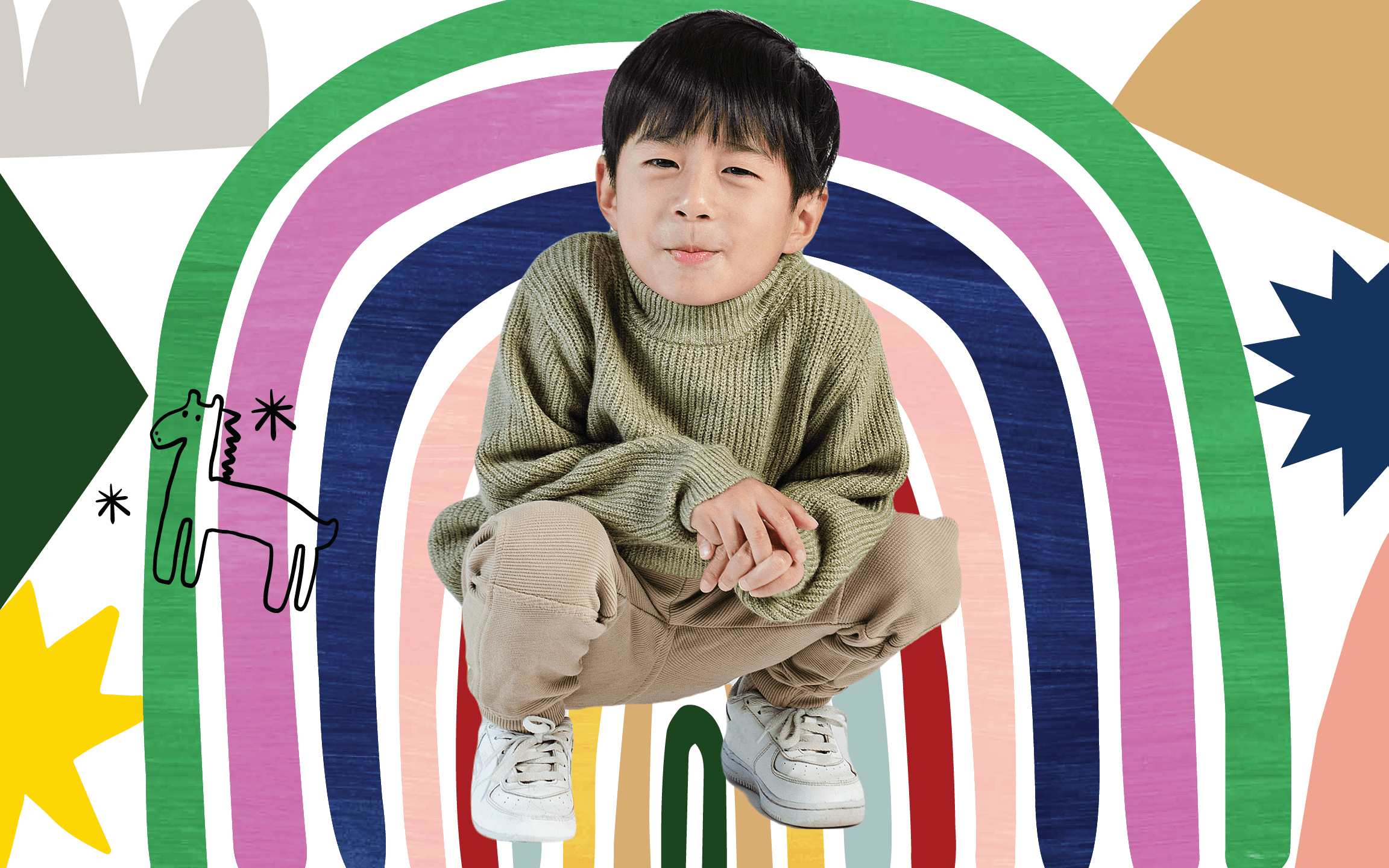It seems like only yesterday you were desperate for your newborn to sleep through the night. And when they finally did, it meant that you caught up on some much-needed sleep, too!
Watching your newborn morph into a toddler (seemingly overnight!), you saw that they were full of energy, curious about the world around them, and always eager to play.
While you most likely adored spending time with your little monster, you were probably enjoying nap time as much as him or her.
Naps are essential for a toddler's health as it gives them a chance to recharge and develop at a healthy rate. But if your little one is beginning to resist daily nap time, you may be scratching your head.
This may mean that your child is growing out of toddlerhood - and they’re well on their way to another milestone. They are becoming more of a big kid, and they’ll need a new set of clothes soon enough!
Sometimes it's not so easy to know if your toddler is ready to give up nap time. How can you understand these cues, and what can you do to make the transition as smooth as possible?
When Exactly Do Toddlers Stop Napping?
It must be said upfront: Every kid is different, and your child may stop needing naps sooner than a sibling or playmate. Don’t jump into panic mode simply because your child is not hitting all the “average” benchmarks from internet articles and baby books.
Remember, those are called averages for a reason – the reality is almost always different.
Each child is an individual, with their own level of energy and sleep requirements. The amount of sleep they get during the night, along with their daily activity, can vary – just like adults.
The Early Years Are Important

You can safely say that most children still nap into preschool years, which is why nap time is almost always part of a daycare or pre-K school's daily schedule.
If your child is at home with you, the same rules apply. Toddlers still need more than twelve hours of sleep a day. They spend over half the week sleeping!
While some young ones will sleep more during the day, others will prefer to sleep longer at night. It's safe to say that most toddlers will dwindle down into just one nap a day rather than two by the age of eighteen months.
Some children still nap past age four, but usually by age five, most children have given up their daily naps - just in time for kindergarten.
Are They Really Ready to Stop Napping?
As your toddler grows, you will begin to recognize that the daytime nap is no longer a necessity. If your child is consistently fighting you on nap time, it may be time to consider doing away with it altogether.
This could just be a sign of stubbornness or a yearning to be more of a “big kid” – so watch for the bluffs. If they are tired, they’ll be cranky no matter what, so allow them to nap and catch up on sleep when they can fight it no longer!
Even if your toddler cringes at the word nap or insists that he is not tired, his actions will speak much louder than words.
Some kids even become so hyperactive that parents refer to it as being "punch drunk.” If you are still seeing a noticeable change in your child when tired, they may not be quite ready to give up that daily nap. Nature will always run its course, so don’t worry too much.
Everything is Still Routine
A daily routine is vital for people at any age. If your toddler is still falling asleep on their own during the day, it's probably their way of telling you they still need a nap. And in fact, trying to interfere with that can backfire on you.
If your child is still showing the telltale signs of a nap, such as yawning, rubbing their eyes, and showing a glazed look, they are most likely still in need of those extra hours of sleep a day. Savor those hours of quiet!

Once your child begins to show the ability to skip a nap without any signs of irritability, he or she may be trying to tell you that nap time is over – once and for all.
Deciding to cease nap time is a process that will take time and patience. Typically, you will begin to notice that your child only needs his or her afternoon nap and seems to breeze through the morning. Or maybe it's the morning nap that still seems most beneficial.
If you find your child falling asleep faster at night and staying asleep, they may no longer need the extra hour during the day.
By making bedtime fun with a high-quality, comfortable set of pajamas and a favorite book or story, your child will eventually look forward to going to sleep.
A Little Help Goes a Long Way
It's essential not to eliminate naps overnight with your child, but you can give a gentle nudge in that direction when you think it’s time. You can easily start by dropping one nap a week, so their body adjusts to less daytime sleep.
In this process, it's important to remember that just because they are sleeping less during the day, that doesn't mean they don't need that sleep at night.
As your child falls asleep earlier or perhaps sleeps later in the morning, you may need to adjust their sleeping schedule once again to accommodate their needs.
By avoiding certain activities that cause drowsiness, you can help your child adjust to nap time reduction. You will certainly want to avoid those long car rides or periods of idleness during the day.
Try to keep your toddler stimulated during the day with a nice walk or a healthy snack. The more direct engagement, the better.
If you decide your child no longer needs a daily nap, they can still benefit greatly from downtime. Even into later childhood and adulthood, rest is crucial to us all. It's a time when the body and mind can relax to bounce back later in the day. Siesta, anyone?
Try a Little Quiet Time
As your child moves into kindergarten, nap time may become known as "quiet time.” This rest period is simple, typically just laying quietly and listening to a story or some calming music.
Most schools will not require a child to fall asleep, but rather only to observe that the lights are now dimmed, and others may be sleeping.
If you still have your child at home with you during these years, the same can be done with a quiet story and even a snuggle with a special stuffed animal. Perhaps letting your toddler change into their favorite comfy clothes will help to quiet them down.
Even if your child falls asleep during quiet time, it's okay! Their body most likely needed it.
Conclusion
There’s no getting around it - we all need naps at certain times in our lives! Adults and children alike. The only difference between kids and adults is timing and frequency.
Eventually, your child will need fewer and fewer naps, so be ready to guide them on the path. Though the transition may be a little rough at times, know that it only means your toddler is on their way to becoming a big kid!
Sources:
When Do Toddlers Stop Napping | Healthline
When Should Kids Stop Taking Regular Naps | Sleep Foundation







Leave a comment
This site is protected by hCaptcha and the hCaptcha Privacy Policy and Terms of Service apply.